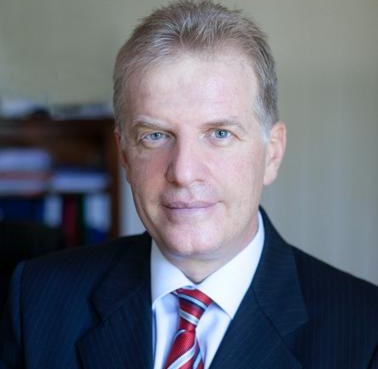By Tirana Times
Copyright tiranatimes

(cases from Albania in which international media should had known better)
The cashless dreamThis July, a Politico-Europe journalist texted me about comments regarding Albanian PM Edi Rama’s recent statement that he would abolish all cash payments by 2030. I replied that this would be a recurring attention-seeking stunt and an attention-deflection maneuver from serious problems. Still wanting to defend, in principle, the freedom of legitimate banknote holders, I presented ways to reasonably increase digital payments to reduce the gray economy but not aim for 100% cash abolition, as it would be like “killing chickens using artillery.” The article appeared the next week under the headline “Albania’s leader pushes dream of first cashless society.” It included my quote and some sober analysis by finance professionals, but while peddling the image of a visionary leader encumbered by petty minders, it brutally lacked context.In 2016, under PM Rama’s direct protection and his interior minister’s management, Albania saw widespread illegal cannabis planting. This served as a springboard for drug lords to enter the more lucrative cocaine market, making them major suppliers of South American narcotics to Europe, as many international reports confirm. Drug proceeds have fueled an unprecedented construction boom, as many official bodies, including the Albanian central bank, confirm, and regular Albanians know and see every day. Probably the most bizarre turn in this context happened three years ago with a government initiative for a globally unprecedented “fiscal-criminal amnesty”: anyone who would show up at a bank counter with big bags filled with euro or dollar bills could legally deposit the money, pay less tax on it compared with a regular business, and be immune from any possible financial inspection or criminal investigation (sic!). The initiative, personally championed by Rama, was decried by the opposition and civil society and was eventually shelved under EU and US pressure.Under this background, a Prime Minister’s statement to move all payments into official channels would seem grotesque to anyone and would have been easily dismissed as propagandistic fireworks. Not so in this case.The non-existent NATO naval baseIn mid-2022, PM Rama publicly offered NATO the opportunity to build a naval base north of Durrës, making media headlines and celebrating a show of loyalty to the Alliance five months into Russia’s aggression against Ukraine. In fact, the Rama government had offered NATO, in writing, another naval base 130 km south two years earlier, which was under assessment, and another Albanian NATO base in the Adriatic Sea, with all coastal states already being Alliance members, might not make sense. Still, no one asked these questions or did any research, and the new offer, which remains to date without any NATO pledge, was reported. That didn’t prevent Reuters and other international media from announcing it under “NATO in talks to build naval base in Albania” headlines.The virtual Bektashi State
Similarly, Rama announced last September at the UN General Assembly the creation of a sovereign Bektashi State on the outskirts of Tirana, around the Sufi order’s headquarters, which would spread a “tolerant Islam.” It caught the Bektashi order by surprise, created tensions with the Sunni leadership, and, more importantly, has no chance of happening, since Rama doesn’t have the votes in the legislature to amend the Constitution (it expressly protects the unitary state’s integral territory) with the parliamentary opposition staunchly against such adventures. Questions like why it would be more (or less) tolerant Islam than other denominations and whether it would radiate beyond the country’s borders if given a statelet remain unanswered to this day. But that wasn’t a good enough reason for major media outlets, including the New York Times, to avoid feverishly (and uncritically) reporting the story. The same happened with Rama’s announcement of a TikTok ban last December, following a knife attack that left a teenager dead. Though the popular app had nothing to do with the tragic event, the PM’s statement again made global headlines. A subsequent, ineffective formal ban was quickly circumvented by VPNs, and later, even the ruling party used it for campaign ads.The holographic ministerThese bombastic announcements have apparently reached their climax in recent weeks, with Rama stating he appointed to his new cabinet a virtual, artificial intelligence-made minister named Diella as the new Incorruptible: she would handle the notoriously corrupt public procurement. He not only announced this but had her name written in the appointment decrees and also had Diella, actually an actress whose hologram spouts statements in a semi-robotic voicemail, speak to the parliamentary session. It’s not just the unconstitutionality of these acts or even the unknowns of honest use of AI, with its biases and unpleasant surprises of machine learning models. It is a context of state capture that naturally begets grand corruption and other forms of official criminality. Albania has seen, in the last decade, the so-called “Tirana incinerator” scandal, with tax money to the tune of approximately 200 million euros spent on a phantasmagorical urban waste project, of which there is no physical trace. While the slow-walked investigation has produced no charges, and a few minor officials were convicted in related cases, PM Rama, who is evidently the main responsible party for the affair, has always praised the project and never assumed any responsibility. Believing that his creation, Diella, would fend off malfeasance in governance, where her master knowingly and willingly engaged in it, looks like transcending reason. Still, this is what international reporting in the aftermath of the Diella announcement would appear to suggest. Perhaps it’s the mysterious magical touch of nascent AI, or the ignorance and lack of interest in a faraway, small country; perhaps it’s a well-intended but naive approach, or even sensationalism combined with eroded journalistic standards. Granted, there is some quality reporting in the Neue Zürcher Zeitung or Agence France Presse, for instance, treading carefully and with due skepticism around the new miraculous minister. But most of their colleagues fell for a hoax and became useful tools for the propaganda of a kleptocratic regime. To their relief, they are not alone. They have good counterparts in international officialdom.Genc PolloPresident of Paneuropa AlbaniaFormer minister25 September 2025



